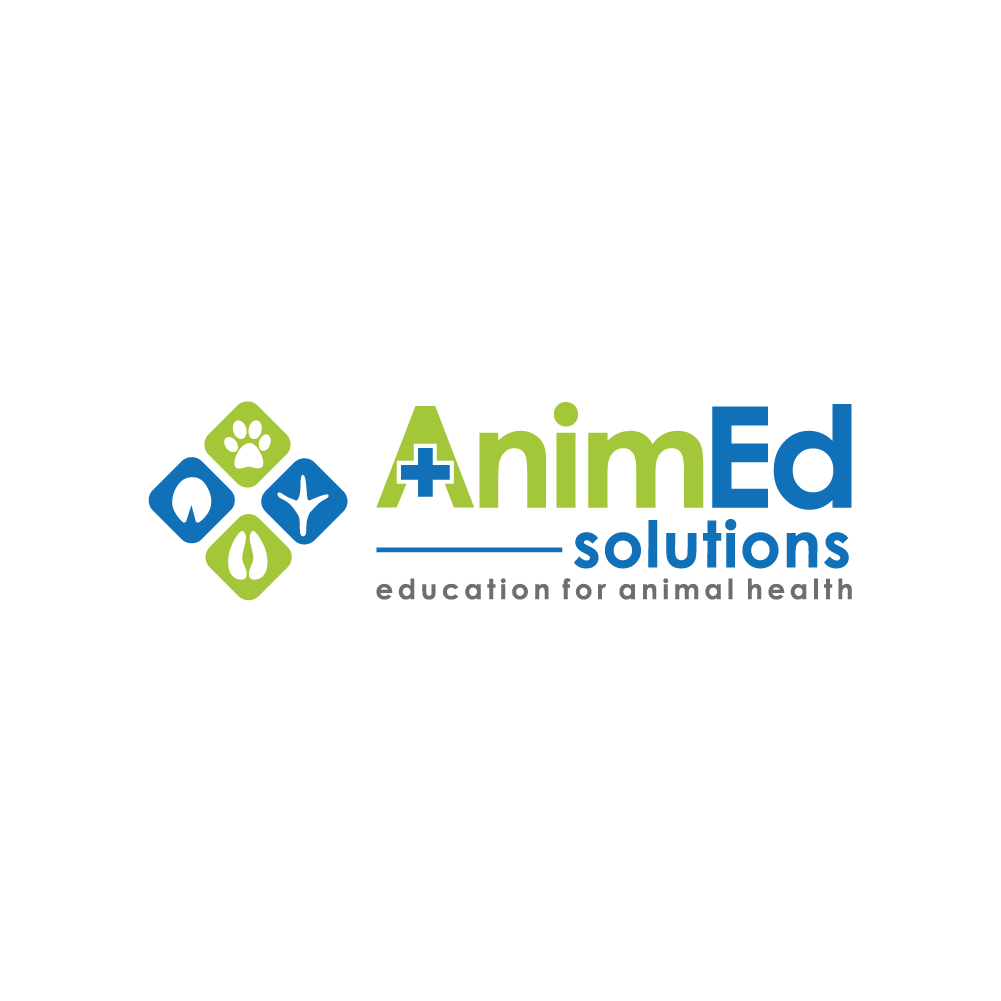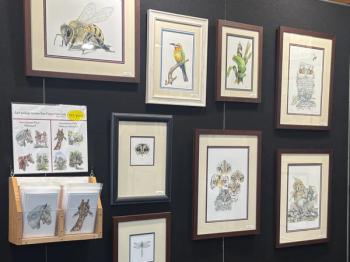
SOS: a survival guide for women in the workplace

Addressing gender-related challenges
A self-professed introvert, Lidewij Wiersma is a charming, witty, and disarmingly brilliant veterinarian and young mother. And, by the way, she is also CEO of the European Board of Veterinary Specialists (EBVS) and has a PhD in emerging coronaviruses. Impressed? I am.
I first met Lidewij in 2020 as AnimEd Solutions began working with European vet specialists to create high-level pet owner education videos. Lidewij was a huge supporter of our mission and the EBVS® quickly became an official partner of AnimEd Solutions.
In September of 2021, I came across a LinkedIn post in which Lidewij announced that an article she co-wrote had recently been published in the Harvard Business Review (HBR). The article, “Do You Feel Guilty All the Time?” was cowritten with her sister, Marijn Wiersma, an expert on diversity and financial inclusion, Tessel van Willigen, a Master of Human Geography and International Development Studies, and Chantal Korteweg, a lawyer and leader in female representation in banking.1
The “guilt” article instantly rang a bell in me. Guilt has been a driver of my own insecurities for as long as I can remember. Women are, in fact, over-represented sufferers of guilt for what we do or don’t do or say. We even feel guilty about feeling guilty. As it turns out, high-performing women top the charts in self-flagellation for not feeling they live up to the socially accepted characteristics of “good leaders”; that is, being strong, brave, and confident in their choices, but never self-critical or apologetic.
As we know, the veterinary profession is currently over-represented by young women, accounting for over 80% of new graduates worldwide. On average, female veterinarians only earn 83% of what male veterinarians earn. And then there is the well-being issue. The last few years have shown the veterinarian suicide rate to be on a frightening growth trajectory. A 2021 study by the AVMA showed that 1 in 6 vets (male or female) has considered suicide.2
The demands of practice, including long hours, high workload, and managerial responsibilities, combined with increasing student debt, poor work-life balance, and easy access to euthanasia solutions, prove a potentially lethal combination to dedicated, passionate professionals who entered veterinary medicine to serve the greater good. A 2018 CDC study showed that female veterinarians are 3.5 times more likely to commit suicide than are male veterinarians.3
And then came COVID. On an already strained profession came thousands upon thousands of new demands with increasing pet adoption. A 2022 study by Mars Veterinary Health evaluated the impact of the pet boom on the ability of the veterinary industry to keep up. They predicted that with pet ownership steadily on the rise and considering the number of expected vet graduates in the next 10 years, by 2030 the US will face a shortage of 15,000 veterinarians. Are you stressed out yet?4
Addressing the gender-related challenges faced, not only by women in the veterinary profession but by all professional women, Lidewij and her co-authors have taken a holistic approach to understanding and tackling the problems. They providewomen with clear strategies for achieving their goals in the workplace while enjoying a well-balanced life. The 2020 “guilt” article grew into their soon-to-be-released guidebook entitled SOS: A Survival Guide for Women at Work. Wiersma et al. touch upon a wealth of gender-related issues including gaps in pay, leadership, promotion, role modeling, conflict resolution, confidence, work hours, and more.
The authors modeled their strategy on the universal acronym for “I need help,” SOS. In the book, “SOS” refers to (1) Self: what can you do for yourself, (2) Others: how others can help you and how you can help others, and, (3) System: how to help change the unwritten social and professional rules that support an inegalitarian system.
As of January 2023, thanks to a successful crowdfunding effort, the book is in publication and available for preorder.
In October 2021, and again in January 2023, I interviewed Lidewij to better understand her personal motivation to develop this important work and help her fellow professional women. To follow are some highlights of my discussion with this fascinating and incredibly down-to-earth leader:
VG: Tell us a little bit about your role as the CEO of the EBVS® and the types of responsibilities that you have in that role.
LW: it's a very interesting job, and very diverse. We work with colleagues from all over Europe and that's a lot of fun. But because we have 27 different disciplines, it's sometimes a challenge to unite everybody's needs in one. Our remit is to set the standards for veterinary specialization in Europe; so that when somebody calls themselves an EBVS specialist, everyone knows what kind of quality they can expect.
It can be very hard to please everybody, but I work on not feeling guilty about not always meeting everyone’s expectations. In fact, my job is very satisfying because we're making a lot of progress as an organization and as a profession in Europe. We also work with partners like AnimEd Solutions to help to get the word out to veterinarians and pet owners about the veterinary specialists here in Europe, and their importance in the animal health ecosystem.
VG: Regarding your recent article on guilt in the Harvard Business Review, what inspired you and your co-authors?
LW: The article on guilt represents just one of the many subjects we touch on in the book. We address workplace challenges such as conflict, imposter syndrome, role models, and more. We feel working women from all professions will identify with the issues. My co-authors and I bring a great diversity of backgrounds, experiences, phases of life, opinions, and personalities to the table. Our book embraces these differences and offers readers a fresh, hopefully funny, and relatable perspective.
VG: Why is it so important to tackle the subject of guilt in professional women?
LW: Guilt is a very specific and recognizable feeling. I don't think anybody looks at guilt and thinks “I've never felt anything like that,” especially in our profession as veterinarians. Most vets are very driven and high-performing, and guilt seems to come with the package.
Personally, I try to juggle a lot of different things, including work, family, and writing this book; and I do feel guilty sometimes. I feel guilty about maybe not performing as well as I could in all of those jobs. I’m also a perfectionist, which we also discuss in the book. To think that I can perform perfectly as a parent, an employee, and an author is just not reasonable or realistic.
VG: I identify with that. Although perfectionism can help us to perform and achieve, we get so wrapped up in the details it's difficult to move forward. We constantly beat ourselves up, which can translate to being too hard on colleagues and family members; and that’s no good.
LW: This can be a huge source of conflict and unhappiness. We don’t realize that, in general, 80% of the result you achieve only comes from about 50% of the work you put in. The other 50% you’ve spent on trying to perfect the details. We need to understand that sometimes 80% is enough and that, maybe, our 80% is just as good as somebody else’s 100%. This is where we learn to compromise.
VG: I find I also have trouble delegating, which keeps me from getting the help that could make my life much easier.
LW: Perfectionists often feel they can do things better than other people and must do everything themselves if they want it done right. Again, this just isn’t realistic. When we learn to delegate certain tasks, things will likely end up being done better than if we had tried to do all of them ourselves. Delegation falls into the “Others” category of our SOS strategy. It’s seeking the help of others. As a bonus, people generally love helping out because it means their abilities are trusted and valued. Offering service makes everyone feel better about themselves. It’s a win-win situation.
VG: One other shortcoming many of us vets have is that we’re not great at communicating. As scientists, we don’t necessarily have strong interpersonal skills; and most vet schools don’t provide training in communication. We tend to feel more comfortable dealing with the technical and medical work than we do speaking to our clients or staff.
LW: We recognize this problem at the EBVS® and we are looking to expand on those “soft skills” in our specialists. Better communication allows for better delegation and general well-being in the workplace. EBVS® is hoping to launch training modules on topics such as communication, ethics, mental well-being etc. These will be aimed at residents but available to a larger audience, so keep an eye out for those.
VG: Mental health is a huge topic in veterinary medicine today. The dramatic rise in veterinary suicides is the reason I created AnimEd Solutions. The Dr. Google effect can have very negative repercussions on the vet-client relationship and on the trust pet owners have in veterinary professionals. My aim is to support veterinarians by helping educate pet parents and promote strong, positive collaboration with their vets. I’m so grateful for the support of the EBVS® and its specialists in participating in this project.
LW: In addition to internet misinformation, I feel the increased suicide rate is also partly due to performance expectations and to the increased feminization of the profession. Although all vets certainly have a lot on their plates, women tend to feel they have more responsibilities in different areas of life, like family, and struggle with work-life balance.
VG: How can your SOS strategy help professional women?
LW: One of our SOS solutions for “Self” is putting on your own oxygen mask before helping others. In a plane crash, you're not going to be able to save your child if you don't have your own oxygen mask on. Lack of self-care leads to high stress and poor performance at work and at home, thus making us feel guilty and feeding the negative spiral. We need to be nice to ourselves (and to others we see in the same situation). We need to forgive ourselves for having binged on Netflix during COVID lockdowns instead of learning Mandarin!
VG: What about imposter syndrome?
LW: Many of us in positions of leadership or who have intense responsibilities, as vets do with the lives of their patients, suffer from imposter syndrome. We feel that unless we know everything about a subject or at least more than any other person in the room, we don’t deserve our position or responsibilities. We feel that, despite our diplomas and years of training, at any moment, the world will figure out that we don’t, in fact, know what we’re doing. As you can imagine, professional women and perfectionists suffer disproportionately from imposter syndrome.
In my position as CEO of EBVS®, I’ve often thought “Oh gosh; I shouldn't even be here,” feeling too young, or unqualified to be leading the most highly respected veterinary opinion leaders in Europe. We need to remember that our positions of responsibility haven’t been handed to us on silver platters, they have been earned. We also need to talk more about these imposter moments; when you discuss them with others, you often find out that everyone feels this way from time to time. There is very little space for vulnerability and humility in most working environments, forcing people to put on a show to be perceived as competent. More value needs to be put on authenticity.
VG: One thing vets tend to feel very insecure about is their ability to run the clinic as a business, a particular problem for practice owners. We are not trained for this in vet school and the learning curve is often huge.
LW: We can’t be expected to know how to run a business just because we’re “smart people.” There are solutions to help us succeed in business. Most require stepping out of our comfort zones. Either we accept that we’ll need additional training in business (a “Self” solution), or we delegate those tasks to people who are trained business professionals (an “Others” solution).
We want to make vets and other professional women aware that help is out there; you are not alone and the responsibility for change does not lie only with you.
VG: I hope the readers of this article are inspired to learn more by ordering your book. For me, the take-home message for professional women everywhere is that we are not alone. Our shared experiences make us stronger. Most importantly, there are tangible solutions for the challenges we face.
As you said, there are many ways to help ourselves (S), help others (O), and allow others to help us (O). We also need to unburden our guilt by understanding that the gender-related challenges we face are the result of archaic, socio-professional “rules” that must be changed. As leaders in our fields, we have the power to act as role models and put measures in place to make the path smoother for the young women who will follow in our footsteps, putting “Society” (S) solutions in place and completing the SOS loop. Working together, we can create a happier, healthier future for working women everywhere.
References
- Do You Feel Guilty All the Time? Harvard Business Review. September 1, 2021. Accessed February 16, 2023.
https://hbr.org/2021/09/do-you-feel-guilty-all-the-time - Study: 1 in 6 veterinarians have considered suicide. AVMA. March 18, 2015. Accessed February 16, 2023.
https://www.avma.org/javma-news/2015-04-01/study-1-6-veterinarians-have-considered-suicide - New Study Finds Higher than Expected Number of Suicide Deaths among U.S. Veterinarians. Centers for Disease Control and Prevention. December 20, 2018. Accessed February 16, 2023.
https://www.cdc.gov/media/releases/2018/p1220-veterinarians-suicide.html - Tackling the Veterinary Professional Shortage. Mars Veterinary Health. March, 2022. Accessed February 16, 2023.
https://www.marsveterinary.com/tackling-the-veterinary-professional-shortage/
Newsletter
From exam room tips to practice management insights, get trusted veterinary news delivered straight to your inbox—subscribe to dvm360.





